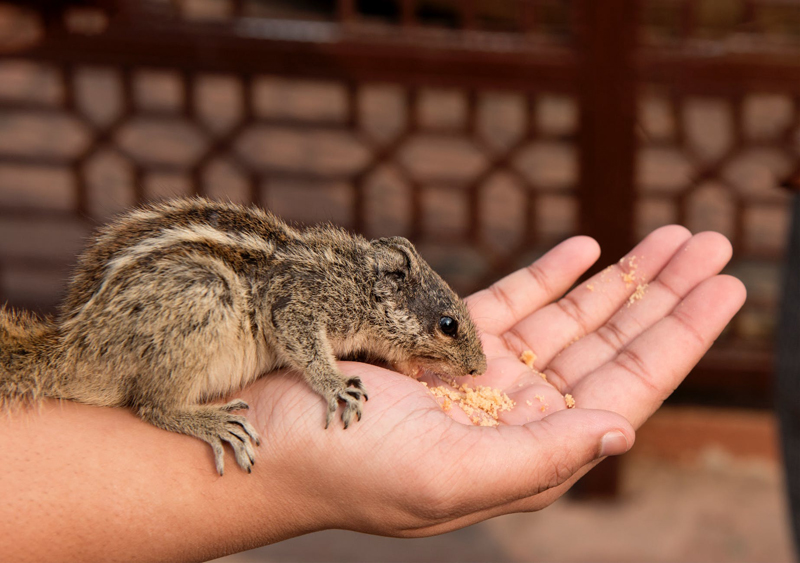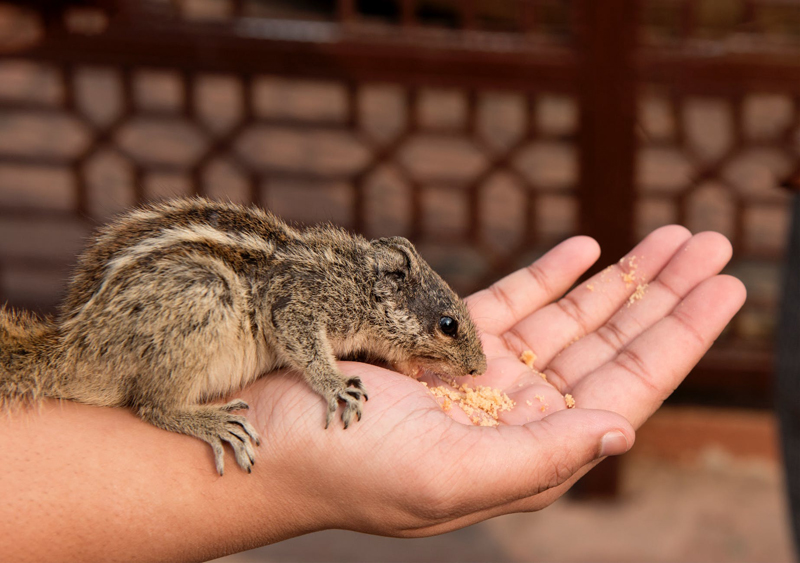Raccoon - Raccoon Roundworms

That is until I watched a couple of partial episodes of Discovery Channel’s “Monsters Inside Me.” That show could scare the malarkey out of anyone, restoring some lost common sense, when you begin to reexamine the potential seriousness of parasites; especially the raccoon roundworm.
Most of the show demonstrates parasites that have infested humans in some far off land. While it is horrendous for the person infested, it is not something I worry about very much. Though, as sushi restaurants spring up at an alarming speed, I know that for a fact they don’t all have well qualified sushi chefs examining every thin cut of fish for parasites or worms.
From the kitchen I heard the words raccoon roundworm. This got my attention. I have had a lot of live-in raccoons over the years. I have known about raccoon roundworm and take precautions. However, the more I learned the more I realized perhaps this subject needed examination at Exotic Pets BellaOnline. Not all people are knowledgeable about the parasites that find our pets as a comfy host.
The raccoon roundworm (Baylisascaris) can infest many different animals, not just raccoons. In fact over a hundred different birds and mammals can be hosts to the raccoon roundworm. Why is it called raccoon roundworm? My guess would be it is because around 80% of the wild population of raccoons have this roundworm, though it doesn't harm the raccoon for some reason, just other hosts. While many animals can be a host to this worm, including dogs, it isn’t the same thing as canine roundworm (Toxocara canis) and other animal roundworms that our animals were fortunate enough to have a parasite named after them.
The eggs of the raccoon roundworm are excreted along with the feces of the host, where it can remain quite healthy for a long time even in extreme temperatures. Another words, it can live in the dirt for years. This is where some unlucky, raccoon, dog, bird, rodent, or even a child can ingest the eggs starting the life cycle of the raccoon roundworm all over again.
I think about the times when I have brought in an infant wild raccoon that was ill or injured and have held it throughout the night, feeling their labored breathing. I would feel their little paws feeling my face for comfort and assurance. Just how clean were those little paws? I am afraid even now, my love for animals would outweigh my common sense, and I would do it all over again. I have also had a number of pet raccoons.
In order for the raccoon roundworm to infect a human, again, it would have to be ingested – with precautions – this can certainly be avoided. The roundworm would have to find a way of making it to the human brain to cause the havoc that can occur in humans, instead of its usual route of making its way through the digestive tract.
If the raccoon roundworm makes it to the brain (and this is very rare) it can cause blindness, paralysis, and even potential death.
Avoid the roundworm lurking, waiting for a host, by keeping children from playing around areas, especially wooded areas where you know that raccoons inhabit. Make sure to keep their hands clean. People, for example - wildlife rehabilitators, that work with wild raccoons should use gloves while handling the feces and avoid inhaling the feces. If you can smell the odor there are tiny particles of feces getting into your nose. Dispose of the feces and anything that came into contact with the feces properly, preferably by burning.
If you have a pet raccoon make sure it is dewormed often. Use the anthelmintic fenbendazole (Panacur) according to your veterinarian’s recommendations. (Strictly off label use not tested on raccoons, skunks, ect.) So many cc’s per body weight for so many days. Repeat according to your veterinarian’s advice. It is a good idea to get a fecal screen for your raccoon or raccoons. If you have had raccoons in your custody, especially a wild raccoon, and were unaware of the raccoon round worm then have a fecal screen done on all your animals. Always use sanitary precautions when handling any raccoon. I don’t want those monsters inside me; nor, in my pet raccoons.
***Raccoon roundworm
***Raccoons - How to Care for the Pet Raccoon
***Coatamundi - How to Care for the Pet Coatamundi
***Kinkajous - Pet Kinkajous
How to travel with pet raccoons Car Travel with Exotic Pets
Ferrets: A Complete Guide available in paperback and Kindle. By Diana Geiger (me:) Five star reviews! Now available at Barnes and Noble online.
Ferrets: A Complete Guide - Paperback
Ferrets: A Complete Guide - Kindle
PDF Version Ferrets: A Complete Guide (Access to free PDF Reader)
Ferrets: A Complete Guide
Subscribe free to the exotic pets newsletter. It is quick and easy Just glance to the right or scroll a bit to the bottom and subscribe. I will only bug you once a week :) Be the first to be in the know! Your information is always private!
This site needs an editor - click to learn more!
You Should Also Read:
Exotic Pet Site Map
Ferrets - A Complete Guide Paperback and Kindle
Exotic Pet Shopping (the safest for your pets)
Related Articles
Editor's Picks Articles
Top Ten Articles
Previous Features
Site Map
Content copyright © 2023 by Diana Geiger. All rights reserved.
This content was written by Diana Geiger. If you wish to use this content in any manner, you need written permission. Contact
BellaOnline Administration
for details.






